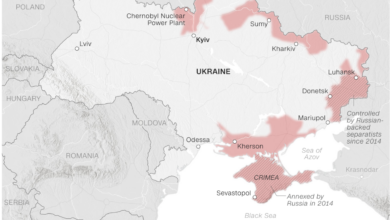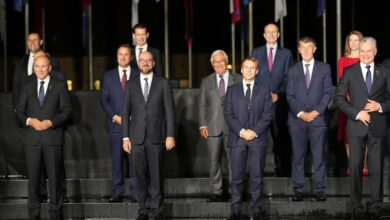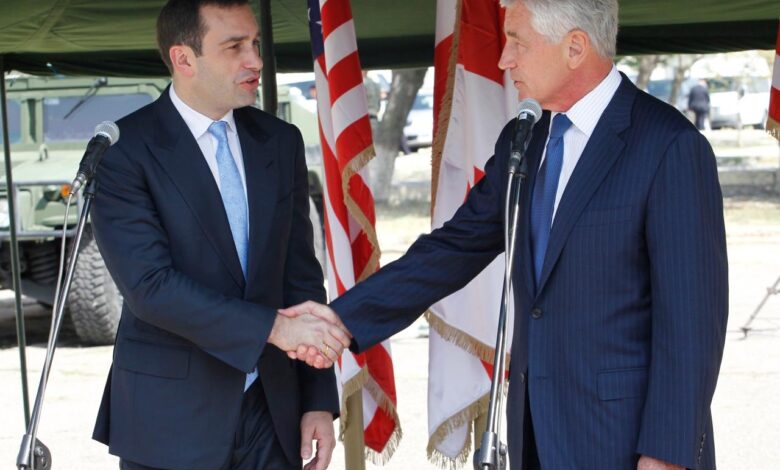
Georgians Fear Countrys Russification
Georgians fear their country is becoming like Russia, a chilling prospect fueled by a complex history and present-day anxieties. This isn’t just about politics; it’s about the subtle and not-so-subtle erosion of Georgian identity, a fear that weaves through everyday life, from the media consumed to the economic choices made. This deep-seated concern stems from centuries of fraught relations with Russia, marked by both periods of cooperation and devastating conflicts that left lasting scars on the Georgian psyche.
Understanding this fear requires delving into the historical context, analyzing current government policies, and exploring the socio-cultural impacts of creeping Russian influence.
The current political climate in Georgia is tense, with many feeling the weight of Russia’s long shadow. The government’s approach to Moscow is constantly scrutinized, with every action and statement analyzed for signs of appeasement or defiance. This uncertainty has permeated Georgian society, leading to anxieties about economic dependence, security vulnerabilities, and the very preservation of Georgian culture.
The spread of Russian propaganda and disinformation further complicates the situation, making it difficult to discern fact from fiction and fueling existing fears.
Historical Context
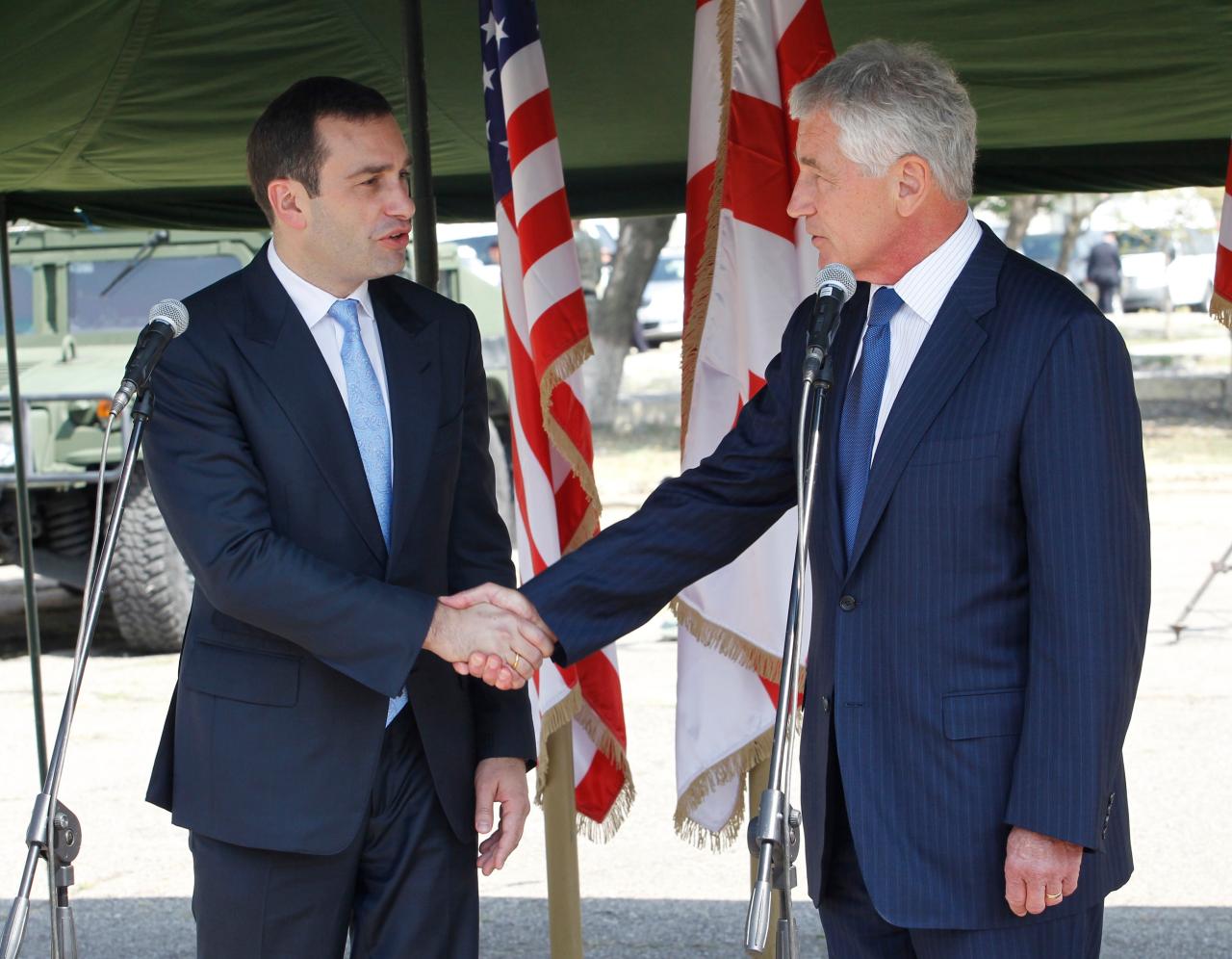
The relationship between Georgia and Russia is a complex and often fraught one, marked by periods of both cooperation and intense conflict. Understanding this history is crucial to grasping the anxieties many Georgians feel about their country’s future and the perceived threat of Russian influence. The narrative is one of fluctuating power dynamics, imperial ambitions, and persistent cultural and political friction.The historical roots of this uneasy relationship stretch back centuries.
While Georgia enjoyed periods of independence and even exerted its own regional influence, it has also been repeatedly subjected to Russian domination. This long history of subjugation has left a deep-seated distrust of Russia among many Georgians.
Russian Imperial Influence and the Loss of Independence
For much of the 19th century, Georgia was progressively incorporated into the Russian Empire. This process, while not always met with outright resistance, involved a gradual erosion of Georgian autonomy and the imposition of Russian governance, language, and culture. Key events like the Russo-Georgian War of 1801-1864 marked a turning point, leading to the annexation of the Kingdom of Kartli-Kakheti and ultimately resulting in the complete loss of Georgian independence.
The imposition of Russian rule led to significant social and political changes, often detrimental to Georgian identity and self-determination. This period established a pattern of Russian dominance that continues to shape Georgian perceptions of Russia today.
Soviet Rule and the Suppression of Georgian Identity
Following the Bolshevik Revolution, Georgia briefly enjoyed a period of independence before being forcibly incorporated into the Soviet Union in 1921. The Soviet era witnessed systematic efforts to suppress Georgian national identity and culture. This included the suppression of the Georgian language in favor of Russian, the collectivization of agriculture, and the persecution of Georgian intellectuals and political figures who opposed Soviet rule.
The legacy of this period is one of deep resentment and a determination to safeguard Georgian sovereignty. The Soviet experience fostered a strong sense of national identity, but also left behind a complex legacy of political and economic challenges.
Post-Soviet Interventions and the 2008 War
The collapse of the Soviet Union in 1991 brought renewed hopes for Georgian independence and self-determination. However, this hope was soon challenged by renewed Russian interventionism. The 2008 Russo-Georgian War, triggered by a Georgian military operation in South Ossetia, stands as a stark reminder of Russia’s willingness to use military force to exert its influence over its neighbors.
This conflict resulted in the loss of Georgian territory and a deepening of the existing distrust between the two countries. The war also highlighted the vulnerability of Georgia in the face of Russian military might, reinforcing anxieties about future interventions. The ongoing presence of Russian troops in Abkhazia and South Ossetia serves as a constant source of tension and a tangible symbol of Russia’s continued influence in Georgia.
The conflict also led to a significant displacement of Georgian civilians, further impacting the social fabric of the country.
Georgians are increasingly worried about creeping authoritarianism, fearing their nation’s trajectory mirrors Russia’s. This anxiety is amplified when you consider the broader global context; reading reports like this one on the worlds poorest countries have experienced a brutal decade highlights how easily instability can take root. The fear in Georgia isn’t just about a single country’s actions, but the potential for similar patterns of decline in vulnerable nations.
Current Political Climate
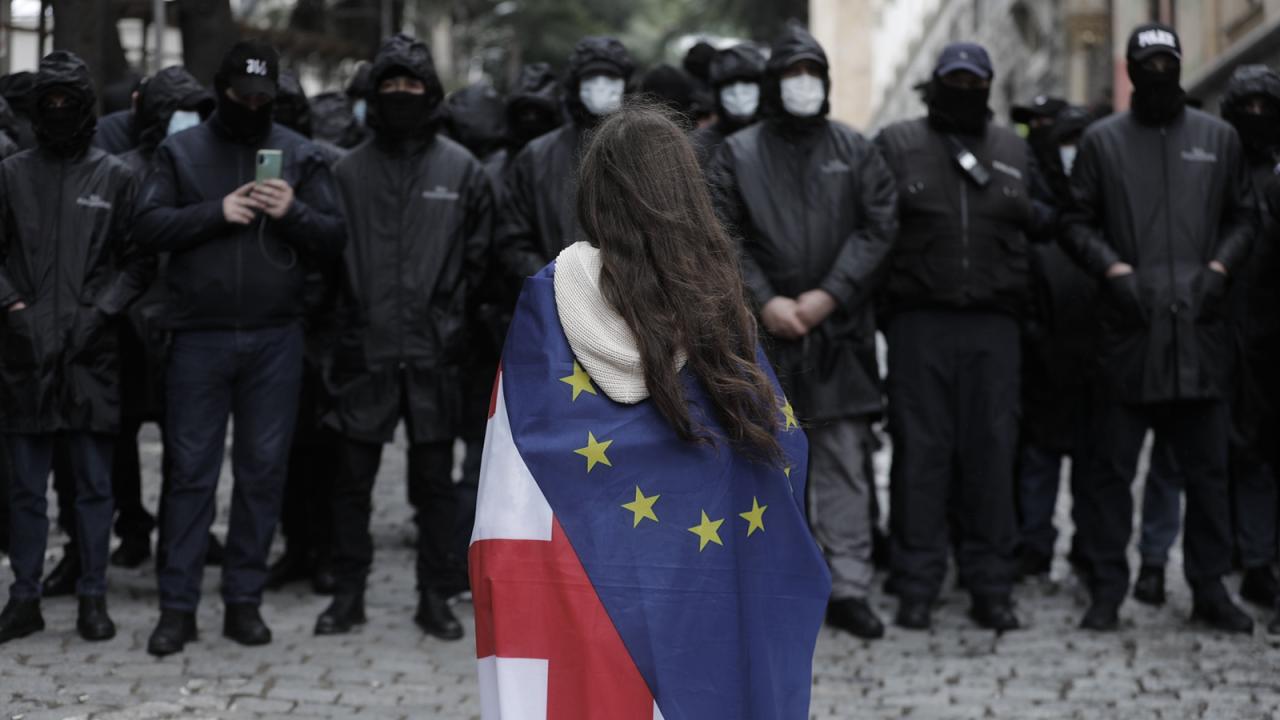
Georgia’s current political climate is heavily influenced by its complex relationship with Russia, a relationship marked by both cooperation and deep-seated distrust. The ongoing tension shapes domestic policy, foreign relations, and the everyday lives of Georgian citizens. The fear of Russification, fueled by historical events and ongoing geopolitical realities, permeates public discourse and significantly impacts the government’s actions.The current Georgian Dream party, in power since 2012, has adopted a pragmatic approach towards Russia, often prioritizing economic ties and stability over immediate confrontation.
Georgians are increasingly worried about creeping authoritarianism, fearing their nation’s trajectory mirrors Russia’s. This anxiety is heightened by the perception that crucial support from the EU, vital for democratic stability, is hampered by inefficiency. The problem is, as highlighted in this insightful article on eu handouts have long been wasteful now they must be fixed , meaning vital funds aren’t reaching where they’re needed most, further fueling Georgian fears about their future.
This contrasts sharply with the more openly confrontational stance adopted by the previous Saakashvili administration, which saw Russia as a primary threat and actively sought closer ties with the West. This shift in approach has led to both praise and criticism, with some seeing it as necessary for economic survival and others viewing it as a dangerous appeasement of Russian influence.
Government Policies Regarding Russia
The Georgian Dream government’s policies toward Russia are characterized by a delicate balancing act. While maintaining a stated commitment to Euro-Atlantic integration, the government has simultaneously sought to improve trade relations and reduce tensions with its powerful neighbor. This has resulted in increased cross-border trade, particularly in agricultural products and tourism. However, this economic pragmatism is often viewed with suspicion by segments of the population who fear it comes at the cost of national sovereignty and cultural integrity.
The government’s efforts to increase tourism from Russia, for example, are seen by some as a direct attempt to bolster the economy at the expense of cultural preservation.
Comparison with Previous Administrations
The starkest difference between the current government’s approach and that of the previous Saakashvili administration lies in the handling of the 2008 Russo-Georgian War. While the Saakashvili government strongly condemned the Russian invasion and sought international condemnation, the Georgian Dream government has prioritized de-escalation and dialogue, albeit within the constraints of maintaining a pro-Western orientation. This has resulted in a more muted response to certain Russian actions, leading some to accuse the current government of being overly accommodating to Russia’s interests.
The Saakashvili administration’s aggressive pursuit of NATO membership and its open criticism of Russia led to significant geopolitical tensions, which the current government has attempted to alleviate through a more measured approach.
Actions Exacerbating Fears of Russification
Several government actions have contributed to the growing fear of Russification among a portion of the Georgian population. The government’s relative silence on certain instances of alleged Russian interference in Georgian affairs, such as the ongoing occupation of Abkhazia and South Ossetia, is frequently cited as a source of concern. Additionally, the increasing use of the Russian language in certain sectors of the economy, and the government’s perceived reluctance to actively counter the spread of Russian propaganda, have further fueled these anxieties.
The lack of a robust national strategy to counteract Russian influence in the media and education sectors is also a major point of contention. These concerns are further exacerbated by the perceived lack of transparency in government dealings with Russia, leading to speculation and distrust among the public.
Socio-Cultural Impacts
The fear of Russification in Georgia isn’t just about politics; it’s deeply intertwined with the nation’s cultural identity. Georgians worry about the gradual erosion of their unique language, traditions, and artistic expressions under the weight of perceived Russian influence. This isn’t a sudden shift, but a slow, insidious process playing out in various aspects of daily life, amplified by the pervasive nature of modern media.The perceived threat to Georgian identity is multifaceted.
It stems from a complex interplay of historical grievances, economic pressures, and the subtle yet pervasive influence of Russian media and cultural products. This influence, whether intentional or not, can lead to a gradual dilution of Georgian cultural distinctiveness, raising concerns about the long-term survival of Georgian traditions and the very essence of Georgian-ness.
The news from Georgia is unsettling; so many fear their country’s trajectory mirrors Russia’s increasingly authoritarian path. It makes me think of simpler things, like sending a care package to loved ones – if I wanted to send some delicious homemade cake to offer a little comfort, I’d need to figure out how to send a cake from New Jersey to Accra , a logistical challenge that pales in comparison to the political anxieties facing Georgians right now.
The weight of those fears is heavy, a stark contrast to the sweetness of a simple cake.
The Diminishing Presence of the Georgian Language
The Georgian language, with its unique alphabet and rich literary heritage, is seen by many as the cornerstone of Georgian national identity. Concerns exist regarding the decreasing use of Georgian in certain spheres of public life, particularly in media and education, potentially due to the influx of Russian-language content. This isn’t necessarily a direct imposition but rather a consequence of market forces and the dominance of Russian media in some regions.
The perceived decline in Georgian language proficiency, especially among younger generations, fuels anxieties about the future of the language and, consequently, the nation’s cultural identity. Efforts to promote Georgian language learning and usage are crucial in counteracting this trend.
Media’s Role in Shaping Perceptions of Russian Influence
The media landscape in Georgia is complex and often reflects the country’s geopolitical realities. The accessibility and popularity of Russian television channels and online platforms, alongside the presence of Russian-language media outlets, contribute to a steady stream of information and cultural products that, some argue, subtly promote Russian narratives and values. This constant exposure can influence public opinion, potentially leading to a normalization of Russian cultural dominance and a gradual erosion of Georgian cultural distinctiveness.
The perceived bias in some media outlets, whether intentional or unintentional, further exacerbates these concerns.
Cultural Initiatives to Preserve Georgian Identity
Despite these challenges, various initiatives are underway to safeguard Georgian culture and language. These range from government-sponsored programs promoting Georgian language education and cultural events to grassroots movements focused on preserving traditional arts, music, and crafts. There’s a renewed emphasis on teaching Georgian history and promoting Georgian literature in schools. Independent media outlets are playing a vital role in presenting alternative narratives and fostering critical thinking among the population.
These efforts, while facing significant hurdles, demonstrate a strong commitment to preserving Georgian identity in the face of perceived external pressures. The success of these initiatives will depend on continued support and the effective counteracting of the pervasive influence of Russian media.
Economic Dependence and Influence: Georgians Fear Their Country Is Becoming Like Russia
Georgia’s economic relationship with Russia is complex and fraught with geopolitical implications. While Georgia has made significant strides in diversifying its economy and seeking closer ties with the West, its historical and geographical proximity to Russia continues to exert considerable influence, particularly in the realm of trade and investment. This dependence raises significant concerns regarding Georgia’s sovereignty and long-term economic stability.The extent of Georgia’s economic dependence on Russia is a matter of ongoing debate, but several key indicators highlight the significant role Russia plays.
Before the 2008 Russo-Georgian War, Russia was Georgia’s largest trading partner. Although trade volumes have significantly decreased since then, Russia remains a major player in certain sectors, and the potential for renewed economic engagement remains a sensitive issue. The impact of this lingering dependence is felt across various aspects of the Georgian economy, influencing everything from tourism to energy security.
Russian Investment in Georgia
Prior to the 2008 war, Russian investment flowed into Georgia, particularly in the tourism and real estate sectors. This investment contributed to economic growth, but it also created vulnerabilities. The sudden withdrawal of Russian investment and tourists following the conflict demonstrated the fragility of an economy overly reliant on a single, potentially hostile, neighbor. The post-2008 period has seen a deliberate effort by Georgia to attract investment from other countries, primarily from the European Union and other Western nations, but the legacy of Russian investment continues to shape the Georgian economic landscape.
For example, certain infrastructure projects might still rely on technologies or materials sourced from Russia, creating a continued, albeit reduced, level of dependence.
Trade Relations Between Georgia and Russia
While trade between Georgia and Russia has diminished since 2008, it hasn’t disappeared entirely. Certain agricultural products and other goods still flow across the border, though often through informal channels. This limited trade, while seemingly insignificant on a global scale, can still exert influence on local markets and regional economic stability. The potential for renewed trade expansion, while beneficial economically, carries significant political risks for Georgia, as it could be seen as a concession to Russian influence and potentially undermine Georgia’s Western aspirations.
Consequences of Economic Dependence on Russia for Georgian Sovereignty
Georgia’s economic ties with Russia, even if diminished, pose a persistent threat to its sovereignty. The potential for economic pressure, sanctions, or even outright trade embargoes from Russia remains a real possibility. This vulnerability limits Georgia’s policy flexibility, especially regarding its foreign policy choices and alignment with Western institutions. A strong, diversified economy is crucial for Georgia to maintain its independence and pursue its geopolitical goals.
The ongoing efforts to diversify trade partners and attract foreign investment are therefore vital to reducing this dependence and safeguarding Georgian sovereignty. A scenario where Georgia becomes overly reliant on Russia again, even in specific sectors, could significantly undermine its ability to resist Russian political and military pressure.
Security Concerns
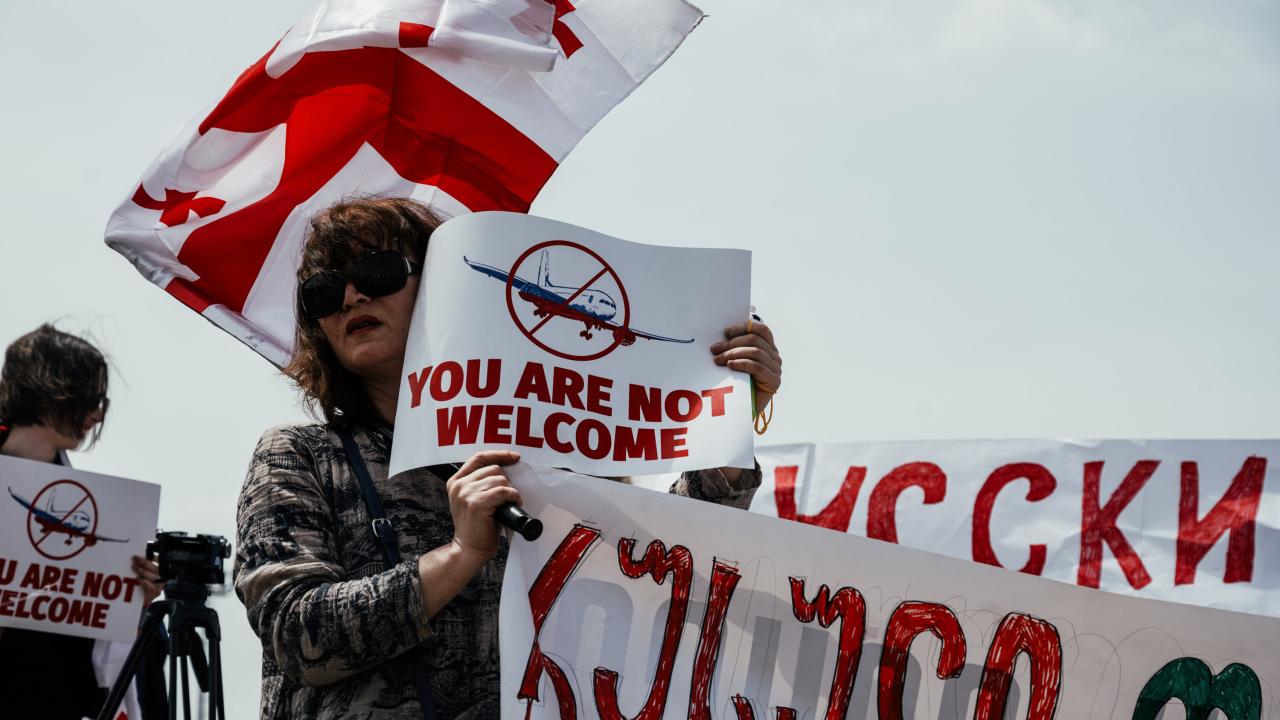
The shadow of Russia looms large over Georgia, casting a pall of fear and uncertainty over its citizens. This isn’t simply about historical grievances; it’s about a very real and present danger stemming from Russia’s military presence and its history of intervention in Georgian affairs. The ongoing threat of further aggression fuels a deep-seated anxiety within the Georgian population, impacting daily life and national security strategies.The disparity in military capabilities between Georgia and Russia is stark.
Russia possesses a vastly superior military in terms of manpower, equipment, and technological advancement. This imbalance creates a sense of vulnerability for Georgia, making it difficult to effectively deter potential aggression. While Georgia has made efforts to modernize its armed forces, it remains heavily reliant on external support for its defense. This dependence, while necessary for now, also highlights the limitations of Georgia’s independent security capabilities.
Military Capabilities Comparison
Russia’s military might dwarfs that of Georgia. Russia boasts a large, well-equipped army, navy, and air force, including advanced weaponry and nuclear capabilities. Georgia’s military, while undergoing modernization, is significantly smaller and lacks the technological sophistication to match Russia’s arsenal. This asymmetry in military power is a fundamental aspect of Georgia’s security concerns. The disparity isn’t simply about numbers; it’s about the qualitative difference in weaponry and technological capacity.
This makes the prospect of a direct military confrontation deeply unsettling for Georgians.
Incidents Fueling Security Concerns, Georgians fear their country is becoming like russia
The following table summarizes key incidents that have significantly heightened security concerns amongst Georgians:
| Date | Event | Location | Impact on Georgian Public Opinion |
|---|---|---|---|
| August 2008 | Russo-Georgian War | South Ossetia and Abkhazia | Widespread fear and distrust of Russia; increased support for closer ties with the West. |
| Ongoing | Russian military presence in occupied territories of Abkhazia and South Ossetia | Abkhazia and South Ossetia | Perpetual sense of insecurity and vulnerability; concerns about potential further encroachment. |
| Various dates | Border incursions and military exercises near Georgian borders | Various locations along Georgian borders | Heightened anxiety and suspicion of Russian intentions; reinforces perceptions of aggressive posture. |
| 2022-Present | Increased Russian military activity following the invasion of Ukraine | Black Sea region, near Georgian borders | Significant increase in fear and uncertainty about potential spillover effects from the Ukraine conflict. |
Public Opinion and Social Discourse
The fear of Russification in Georgia isn’t a silent anxiety; it’s a palpable current running through public opinion, media narratives, and the actions of civil society. Understanding this complex interplay is crucial to grasping the depth of Georgian concerns about its relationship with its powerful northern neighbor. The anxieties are not uniform across the population, but a significant portion harbors deep-seated fears about the erosion of Georgian sovereignty and identity.Public opinion surveys consistently reveal a strong anti-Russian sentiment among Georgians, often linked to historical grievances and ongoing geopolitical tensions.
This sentiment is fueled by Russia’s past military interventions, its ongoing support for separatist regions, and its perceived attempts to undermine Georgia’s democratic institutions and Western aspirations.
Public Opinion Surveys and Polls
Numerous polls and surveys conducted by reputable organizations like the National Democratic Institute (NDI) and the International Republican Institute (IRI) have consistently shown a high level of distrust towards Russia among Georgian citizens. These surveys often reveal a significant majority expressing concerns about Russian influence in Georgian politics, media, and economy. For example, a 2022 NDI survey indicated a substantial percentage of Georgians believed Russia was actively trying to destabilize the country.
While precise numbers vary depending on the specific question and year of the survey, the overall trend points to a pervasive anxiety about Russia’s intentions. These surveys often also reveal a correlation between levels of trust in the Georgian government and concerns about Russian influence; lower trust in the government frequently correlates with higher levels of fear regarding Russia.
Media Narratives and Discussions
The Georgian media landscape, while diverse, often reflects and amplifies anxieties about Russification. Pro-Western media outlets frequently highlight instances of alleged Russian interference, focusing on disinformation campaigns, economic pressure, and political meddling. Conversely, some pro-Russian outlets downplay these concerns, presenting a more nuanced or even positive perspective on Russia’s role in the region. This division in media representation contributes to a polarized public discourse, further intensifying the debate about the extent and nature of the Russian threat.
The constant flow of information, both accurate and misleading, shapes public perception and fuels ongoing anxieties. The coverage of events like the 2008 Russo-Georgian War and ongoing conflicts in Abkhazia and South Ossetia invariably reinforces these fears.
Civil Society Organizations and Activist Groups
Georgia’s vibrant civil society plays a vital role in addressing concerns about Russification. Numerous NGOs actively monitor Russian influence, promote democratic values, and advocate for closer ties with the West. These organizations often conduct research, publish reports, and organize public awareness campaigns to educate citizens about potential threats and empower them to participate in the democratic process. Activist groups frequently organize protests and demonstrations to voice their opposition to Russian policies and to defend Georgian sovereignty.
These groups often collaborate with international organizations to enhance their capacity and reach. Their efforts contribute significantly to the public discourse and help shape policy debates on issues related to national security and foreign policy. The level of activism and the diversity of approaches employed by these organizations highlight the importance of civil society in navigating the complex challenges posed by Russia’s influence.
The fear of Russification in Georgia is a multifaceted issue deeply rooted in history and shaped by contemporary events. It’s a concern that transcends simple political calculations, impacting every aspect of Georgian life, from the economy and security to the preservation of national identity. While the Georgian government navigates a complex geopolitical landscape, the anxieties of its citizens remain a powerful force shaping the nation’s trajectory.
The future of Georgia hangs in the balance, a delicate dance between its aspirations for Western integration and the ever-present pressure from its powerful neighbor.


